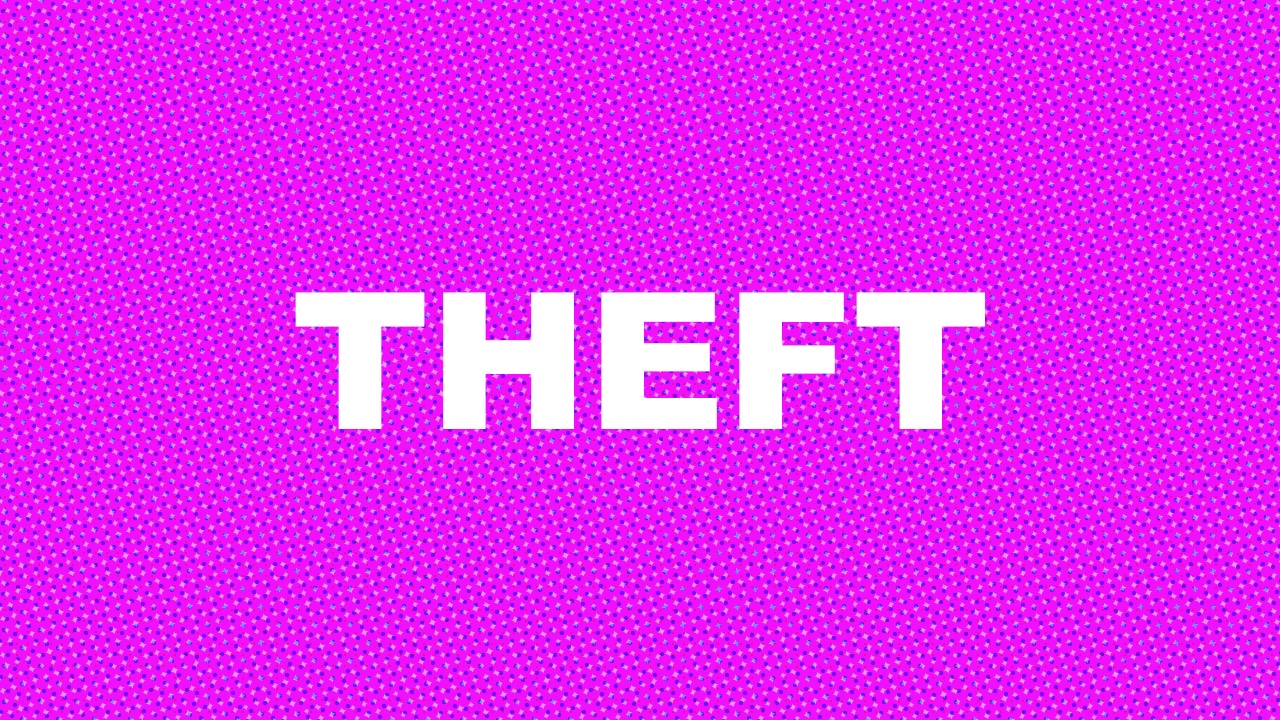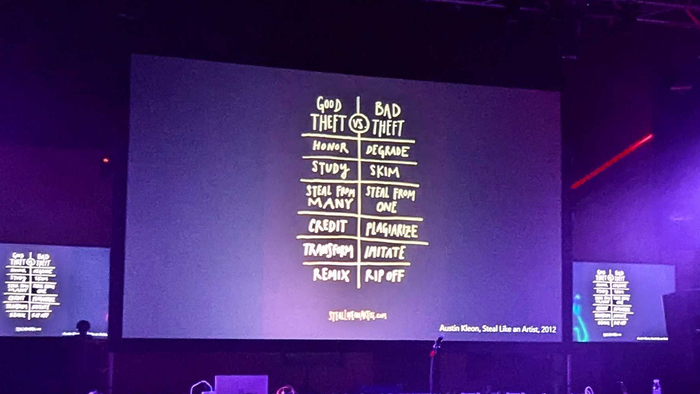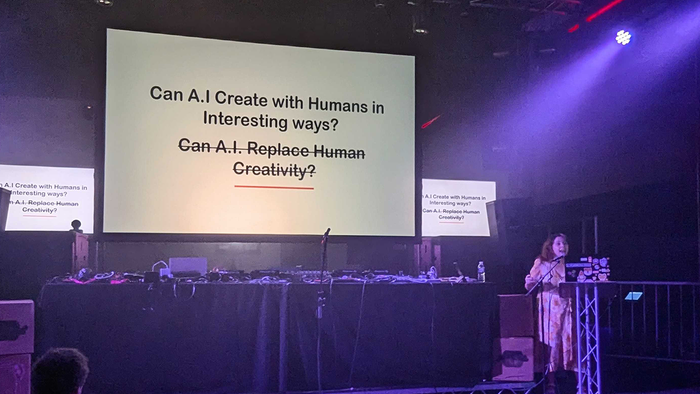Trending
Opinion: How will Project 2025 impact game developers?
The Heritage Foundation's manifesto for the possible next administration could do great harm to many, including large portions of the game development community.
Speaking at AMAZE Sheffield, Good Afternoon co-founder Sarah Brin explains why generative AI is currently an example of 'bad theft.'

"2024 was a pretty fucked up year in games so can I get a 'fuck that shit' on the count of three," says Good Afternoon co-founder and executive producer, Sarah Brin, opening an electric slalom of Hyper Talks at AMAZE Sheffield. Those in attendance duly oblige.
Brin briefly took the podium (Hyper Talk speakers only have five minutes to blitz through a topic) to discuss why AI has contributed to the "clusterfuck" that has become the video game industry. She suggests the technology itself isn't the problem, but rather the "overhyped expectations" that have convinced studio heads it can replace human creativity.
"First of all, I want to talk to you a little bit about creativity—and creativity, just in case you didn't know, isn't something you're born with or not," says Brin. "Creativity doesn't just mean being good at art. It's a whole set of holistic skills that I do not have time to unpack for you, so I want to talk about once core concept, and that's the concept of theft."
Brin is specifically referring to the concept of theft as described by artist and writer Austin Kleon, who explains that while "imitation is not flattery. It’s transformation that is flattery: taking what you’ve stolen and turning it into something new."
"He explains that part of finding your voice as a creative is about borrowing and sampling and copying the people you really admire. As he outlines here's there's good stuff: honor, study, steal from many," Brin says. "[Then there's] bad theft: not giving credit, plagiarizing, and ripping off. When it comes to AI, it's an example of bad theft. At least as it stands now, because there's no way of giving credit."

Offering up some evidence, Brin displays the work of D&D artist Greg Rutkowski, whose work has been copied more than Picasso through AI tools like Midjourney without him ever receiving a credit (more on that here from BBC News).
"Because of the way the [Midjourney] LLM is set up there's no way to give Rutkowski credit or monetary reimbursement for the work that's been fed into the model. So where does that leave the artist and game developers?," she asks.
"I would say that many entry-level positions in the game industry as well as those higher up are at risk because of cost-cutting measures. So what do we do? First of all we need to start being responsible about how we put together datasets. We need more mechanisms for attribution. So, the question I want to pose to you today, rather than 'can AI replace human creativity?,' is can AI create with humans in interesting ways as part of the creative process—not a replacement for it?"
Getting a little bit philosophical, Brin leans on a theory of play that that emphasizes a "dialogue between audience and content," and says we should emulate that dialogue when considering how to combine creative production, AI, and games.
"Creativity is interplay between humans and their tools, but we have to protect people and workers. We want to build a strong thriving economy in which we can enjoy the work we love to do but also not live in a robotic dystopia," she continues. "How do we protect and promote human creativity? We organize."

Brin is referencing the ongoing efforts of unions across a number of industries that are working to secure AI protections, preventing major companies from deploying the technology in unethical, debilitating ways. SAG–AFTRA's recent decision to strike in a bid to protect video game performers from AI tools is just one instance of how that collective power can manifest.
"Our activism and protecting our creative practice and our craft [isn't just about what] we do in here together as a community. We actually need to get out there and push for legislation and policy recommendations to protect our economic and social futures," she adds.
For Brin, it's on workers to "move the needle" as a collective and deliver the protections creative industries are crying out for. "If you're not already familiar or are part of a union, please join one." She closes by demanding a rousing "hell yeah" in favor of a better, brighter future for creativity in games. The roof, quite naturally, comes off.
You May Also Like